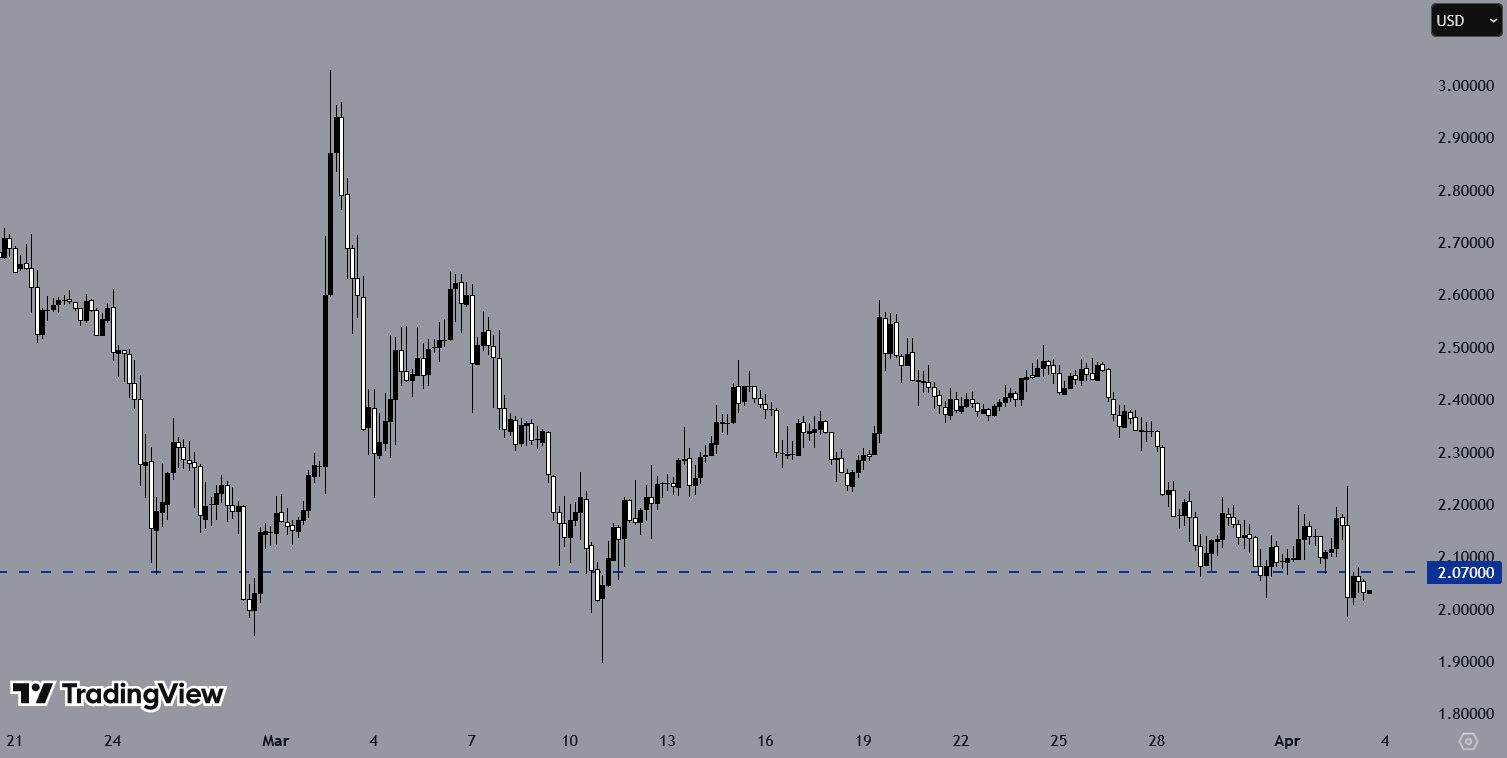XRP Price Drops 5%: Crypto Markets Cautious as Trump Imposes Reciprocal US Tariffs
US President Donald Trump has followed through on a key campaign promise. On Wednesday (yesterday), Trump officially ordered reciprocal tariffs to be imposed globally starting from 5 April. This decision is expected to create cautious sentiment, with concerns over a potential trade war escalation.
The cryptocurrency market saw increased volatility after the announcement. XRP dropped 5% on Wednesday following Trump's tariff declaration.
US Tariffs Prompt Market Uncertainty
"I believe the lack of a clear reaction from crypto markets reflects a sense of collective shock among participants. Many including myself doubt this is a final decision. There's a widespread expectation that the situation could pivot quickly. Traditional economists are rightly pointing out that these aggressive tariffs increase global uncertainty and tilt the world economy toward potential recession," said Kirill Kretov, Automation Expert at CoinPanel.

The XRPUSD H1 chart shows a significant breakout at a support level, which could act as resistance, potentially driving the price down. However, some buyers may wait for further decline before entering the market.
"Crypto prices are particularly vulnerable to manipulation. Many investors are likely choosing to stay on the sidelines until there's more clarity. Personally, I see significant potential for profit during this period of volatility, but it's a space where only the nimblest players will thrive," Kretov added.
Read more at FinanceMagnates.com: Bitcoin, Altcoins Fell Under President Trump’s Tariff Wrath: Can Cryptos Recover?
🚨We just saw one of the largest tariffs in US history😱
— Trader Naman (@namantrader) April 3, 2025
-185 countries will suffer tariff war
-S&P 500 futures erased -$2 TRILLION of market cap in under 15 minutes.
-The total crypto market cap is down -3.3% from $2.88T to $2.78T today
Trump announced , “and now we are… pic.twitter.com/iyaHz7cXEy
Global Markets Decline amid US Tariffs
Meanwhile, Global financial markets have faced significant turbulence following Trump's announcement of tariffs. Stock indices across Europe and the US saw widespread declines, including major indices like the Euro Stoxx 50, S&P 500, and Nasdaq 100.
The tariffs, ranging from 10% to 50%, have raised concerns about a potential trade war and disruptions to global supply chains. European markets, including the DAX and Euro Stoxx 50, opened lower, with Germany’s DAX dropping 1.3%.
US markets mirrored the pessimism, with futures on the S&P 500 and Nasdaq 100 falling sharply. Analysts cite trade war fears, inflation, and economic growth concerns as key factors behind the sell-off, with particular vulnerabilities in sectors like automotive and retail. Gold futures reached record highs, reflecting a flight to safety as investors brace for further market volatility.



